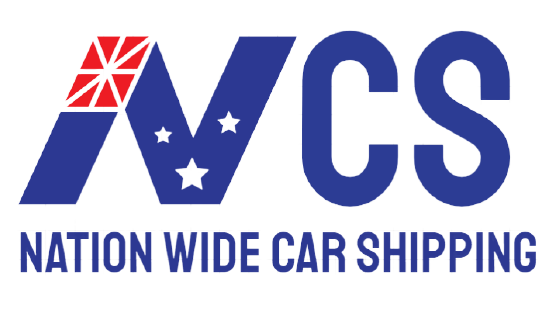Cross-Country Car Transport: A Comprehensive Guide
Effortlessly Move Your Vehicle Across States with Confidence
Transporting a car across the country is a significant undertaking, whether relocating, purchasing a vehicle from another state, or heading to a seasonal residence. This guide explores everything you need about cross-country car transport, including methods, costs, preparation, and common challenges.
| Introduction | Importance of cross-country car transport, key considerations |
| What Is Cross-Country Car Transport? | Definition, scenarios requiring car transport |
| Benefits of Professional Car Transport Services | Time-saving, safety, convenience, cost efficiency, reduced wear and tear |
| Types of Cross-Country Car Transport | Open transport, enclosed transport, door-to-door, terminal-to-terminal, expedited services |
| How Cross-Country Car Transport Works | Booking process, transport planning, delivery methods |
| Key Factors Influencing Costs | Distance, vehicle size and type, seasonality, service type, additional services |
| Comparing DIY Transport vs. Professional Services | Pros and cons of driving the vehicle yourself vs. hiring a service |
| How to Choose the Right Transport Company | Researching companies, reading reviews, verifying credentials, assessing services offered |
| Preparing Your Vehicle for Transport | Cleaning, documenting condition, removing personal items, ensuring mechanical readiness |
| Insurance and Liability in Car Transport | Understanding coverage, verifying transporter insurance, securing additional coverage if needed |
| Understanding Delivery Timeframes | Factors affecting timelines, typical delivery durations |
| Tips for a Smooth Transport Experience | Communication with the company, handling delays, minimizing risks |
| Common Challenges in Cross-Country Transport | Weather, delays, communication issues, hidden fees |
| Environmental Impact of Car Transport | Fuel efficiency, eco-friendly practices, carbon offset options |
| Future Trends in Cross-Country Car Transport | Advancements in technology, autonomous vehicle transport, eco-friendly innovations |
| FAQs About Cross-Country Car Transport | Six frequently asked questions and their detailed answers |
| Conclusion | Recap of essential points and encouraging words for a stress-free transport |
Introduction
Transporting a car across the country might sound daunting, but with the right information and resources, the process can be seamless. Whether you’re moving for work, selling a car online, or heading south for the winter, cross-country car transport services offer a reliable solution. This article will serve as your go-to guide for understanding the nuances of vehicle transportation across states.
What Is Cross-Country Car Transport?
Cross-country car transport refers to the process of moving a vehicle from one location to another over long distances, typically spanning several states or coast-to-coast. Here are common scenarios where this service is required:
- Relocation: Moving to a new city or state for personal or professional reasons.
- Online Car Purchase: Buying a vehicle from out of state and needing it delivered.
- Seasonal Moves: Snowbirds traveling between northern and southern states.
- Military Moves: Relocation as part of a military transfer.
- Collector’s Transport: Shipping classic or luxury cars for shows or sales.
Benefits of Professional Car Transport Services
Using a professional service offers numerous advantages over driving the car yourself:
- Time-Saving: Avoid days or weeks on the road.
- Safety: Reduces the risk of accidents and road fatigue.
- Convenience: Door-to-door service ensures minimal disruption to your routine.
- Cost Efficiency: Saves on fuel, accommodation, and vehicle wear and tear.
- Reduced Wear and Tear: Prevents mileage accumulation and potential breakdowns.
Types of Cross-Country Car Transport
Understanding your options ensures you choose the best method for your needs:
- Open Transport:
- Most cost-effective method.
- Vehicles are transported on an open trailer, exposed to the elements.
- Enclosed Transport:
- Offers protection against weather and road debris.
- Ideal for luxury, classic, or exotic cars.
- Door-to-Door Service:
- Convenient pickup and delivery at specific addresses.
- Terminal-to-Terminal Service:
- Requires the vehicle to be dropped off and picked up at designated locations.
- Expedited Services:
- Prioritized transport for faster delivery.
How Cross-Country Car Transport Works
- Booking Process: Research companies, request quotes, and schedule your transport.
- Transport Planning: Routes and timelines are determined based on your preferences.
- Pickup and Loading: Vehicle is inspected, loaded, and secured onto the carrier.
- In-Transit Updates: Regular updates on location and estimated delivery.
- Delivery: Final inspection and signing off upon receiving the vehicle.
Key Factors Influencing Costs
Several variables affect the cost of transporting a car cross-country:
- Distance: Longer distances increase costs.
- Vehicle Type: Larger and heavier vehicles may cost more.
- Seasonality: Peak moving seasons (summer and holidays) lead to higher rates.
- Transport Type: Enclosed carriers are pricier than open trailers.
- Additional Services: Expedited shipping or insurance add to the cost.
Comparing DIY Transport vs. Professional Services
| Aspect | DIY Driving | Professional Transport |
|---|---|---|
| Cost | Fuel, lodging, meals | Fixed quote, all-inclusive |
| Time Investment | Days to weeks on the road | Minimal, relies on the company |
| Safety | Risk of accidents, fatigue | Professionally handled |
| Convenience | Requires extensive planning | Fully managed process |
How to Choose the Right Transport Company
- Research Thoroughly: Look for licensed, bonded, and insured companies.
- Read Reviews: Check customer feedback on platforms like Google and Yelp.
- Verify Credentials: Ensure the company has a USDOT number and MC license.
- Compare Services: Evaluate cost, delivery times, and service types.
Preparing Your Vehicle for Transport
Preparation ensures a smooth process:
- Clean the Vehicle: Helps in identifying scratches or dents during inspections.
- Document Condition: Take photos and make notes of existing damage.
- Remove Personal Items: Avoid potential theft or policy violations.
- Check Mechanicals: Ensure tires are inflated, fluids topped off, and battery charged.
Insurance and Liability in Car Transport
Understanding insurance is crucial for peace of mind:
- Most carriers include basic coverage.
- Verify the extent of liability insurance.
- Consider purchasing additional coverage for high-value vehicles.
Understanding Delivery Timeframes
- Factors Affecting Timelines: Weather, route complexity, and demand.
- Typical Durations: Coast-to-coast transport generally takes 7–14 days.
Tips for a Smooth Transport Experience
- Communicate expectations clearly with the company.
- Prepare for potential delays due to unforeseen circumstances.
- Use tracking tools to stay updated on your vehicle’s location.
Common Challenges in Cross-Country Transport
- Weather Delays: Unexpected storms or snow can affect timelines.
- Communication Issues: Stay proactive to address misunderstandings.
- Hidden Fees: Clarify pricing and get all agreements in writing.
Environmental Impact of Car Transport
- Fuel Efficiency: Carriers transport multiple vehicles, reducing overall fuel consumption.
- Eco-Friendly Practices: Choose companies that use fuel-efficient fleets.
- Carbon Offsets: Some companies offer offset programs to mitigate emissions.
Future Trends in Cross-Country Car Transport
- Technological Advancements: GPS tracking, AI route optimization.
- Autonomous Transport Vehicles: Self-driving trucks for safer, faster delivery.
- Sustainable Innovations: Solar-powered carriers and electric trucks.
FAQs About Cross-Country Car Transport
- How much does cross-country car transport cost?
Costs range from $800 to $1,500, depending on distance, vehicle type, and service preferences. - Is my car insured during transport?
Yes, most companies provide basic insurance. Verify details before signing a contract. - Can I transport personal belongings in my car?
Most carriers discourage it due to liability and weight restrictions. - What is the safest way to transport a luxury vehicle?
Enclosed transport offers optimal protection. - How far in advance should I book transport?
Ideally, 2–4 weeks before your desired pickup date. - Can I track my vehicle during transit?
Many companies offer GPS tracking for real-time updates.
Conclusion
Cross-country car transport doesn’t have to be stressful. With the right preparation, a trusted service provider, and clear communication, your vehicle can reach its destination safely and efficiently. Use this guide to make informed decisions and enjoy peace of mind during the process.

